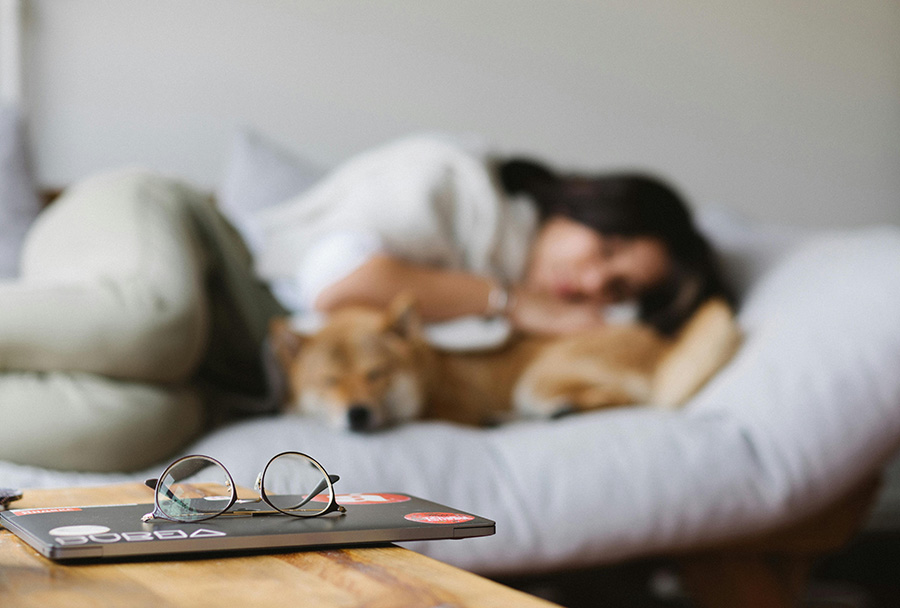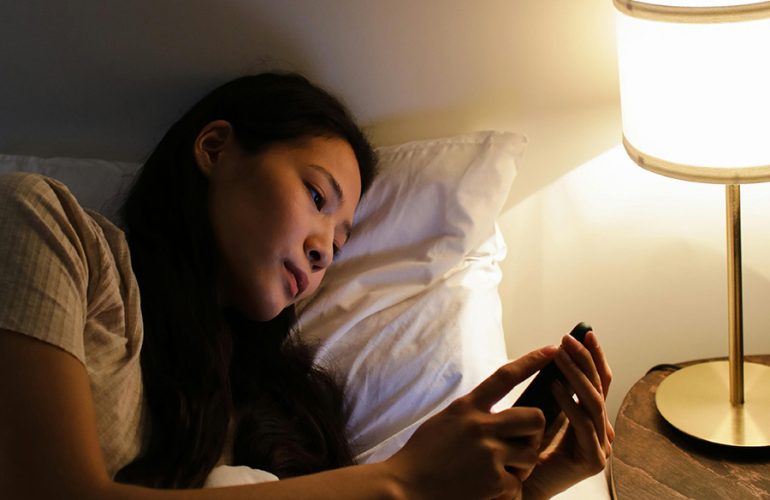As the new year rolls around, many of us are thinking about resolutions—goals that can improve our health, productivity, and overall quality of life. Among the most impactful, yet often overlooked resolutions is improving our sleep. Quality sleep is the foundation of good health, yet millions of people struggle to get enough restorative rest. If you’re among them, making a New Year’s resolution for 2025 to prioritize better sleep could be one of the best decisions you make in 2024.
In this article, we’ll explore practical steps, scientific insights, and expert tips to help you improve your sleep habits and make your resolution a lasting success.
Why Sleep Matters: The Benefits of Quality Rest
Before diving into strategies, it’s important to understand why sleep matters so much. Sleep is a vital biological process that impacts nearly every aspect of our physical and mental health. Here are some key benefits of quality sleep:
- Physical Health: Sleep is essential for cellular repair, muscle recovery, and immune function. It helps regulate hormones that control appetite, stress, and metabolism, which can influence weight management and the risk of chronic conditions like heart disease and diabetes.
- Mental Health: Adequate sleep supports cognitive function, mood regulation, and emotional resilience. Poor sleep is closely linked to anxiety, depression, and irritability. By improving your sleep, you’re also investing in your mental well-being.
- Productivity and Focus: A good night’s sleep can enhance concentration, problem-solving abilities, and memory. Whether you’re working, studying, or engaging in creative pursuits, better sleep helps you perform at your best.
- Longevity: Chronic sleep deprivation has been associated with increased risk of early mortality. Prioritizing sleep is one of the most effective ways to enhance both your lifespan and your quality of life.
Given these profound benefits, it’s clear that improving sleep is a resolution worth making. So, how can you do it? Let’s break it down into manageable steps.
1. Set Clear, Realistic Sleep Goals
A New Year’s resolution needs to be specific and achievable, and the same goes for sleep. Instead of vague goals like “get better sleep,” break it down into concrete, measurable targets:
- Target Bedtime: Set a consistent bedtime and wake-up time to regulate your body’s internal clock. Aim for at least 7-9 hours of sleep per night, depending on your age and personal needs.
- Sleep Environment: Aim to create a bedroom that supports optimal rest. This includes adjusting the temperature, minimizing noise and light, and investing in a comfortable mattress and pillows.
- Limit Stimulants: Set a goal to limit caffeine, alcohol, and nicotine intake, especially in the hours leading up to bedtime.
By creating small, measurable goals, you’re more likely to track your progress and stay motivated.
2. Establish a Relaxing Bedtime Routine
One of the most effective ways to improve sleep is by incorporating a relaxing bedtime routine. Signals that tell your body it’s time to wind down can make it easier to fall asleep and stay asleep. Consider the following habits:
- Turn Off Electronics: Aim to power down screens at least 30-60 minutes before bed. Blue light from phones, tablets, and computers interferes with melatonin production, the hormone responsible for regulating sleep.
- Practice Relaxation Techniques: Meditation, deep breathing exercises, or gentle stretches can calm your nervous system and ease tension. Even reading a book or taking a warm bath can signal to your body that it’s time to sleep.
- Keep a Sleep Journal: If stress or racing thoughts keep you up at night, try journaling before bed. Write down your thoughts or create a list of tasks for the next day, so your mind isn’t preoccupied with them.
3. Optimize Your Sleep Environment
Your bedroom should be a sanctuary for rest, free from distractions and discomfort. Here are some tips for optimizing your sleep space:
- Cool, Dark, and Quiet: A cooler room temperature (around 60-67°F or 15-20°C) is optimal for sleep. Light and noise disrupt the production of melatonin, so consider blackout curtains and white noise machines if necessary.
- Comfortable Mattress and Pillows: Invest in a mattress that supports your body’s needs. Choose pillows that support proper alignment of the neck and spine.
- Minimize Clutter: A cluttered bedroom can create mental stress. Keep your sleep environment tidy and calming, with soft lighting and soothing colors.
4. Pay Attention to What You Eat and Drink
Your diet plays a key role in your ability to fall asleep and stay asleep. As part of your resolution, focus on making dietary changes that promote better sleep:
- Avoid Heavy Meals Before Bed: Large, rich meals can cause indigestion and discomfort, disrupting your sleep. Try to finish eating at least 2-3 hours before bed.
- Limit Caffeine and Alcohol: Both caffeine and alcohol can interfere with the quality of your sleep. Caffeine is a stimulant that can keep you awake for hours, while alcohol disrupts the sleep cycle and leads to fragmented rest.
- Try Sleep-Promoting Foods: Foods like turkey, cherries, almonds, and bananas contain tryptophan or melatonin, compounds that can help you wind down. Incorporating these into your evening meals may help improve sleep quality.
5. Get Moving: Exercise and Sleep
Regular physical activity has numerous benefits for sleep. Exercise helps regulate the body’s sleep-wake cycle and can promote deeper, more restorative rest. However, timing matters:
- Morning or Afternoon Workouts: Aim to finish exercising at least 3 hours before bedtime. Engaging in intense activity too close to bedtime can raise your adrenaline levels, making it harder to relax.
- Consistency: Regular exercise is key. Aim for at least 30 minutes of moderate exercise on most days of the week to support healthy sleep.
6. Manage Stress and Anxiety
Stress and anxiety are among the leading causes of poor sleep. If you’re often tossing and turning due to a racing mind, it’s crucial to address the root causes. Consider the following strategies:
- Mindfulness and Meditation: These practices help center your thoughts and reduce the physical symptoms of stress. Apps like Headspace or Calm offer guided meditation sessions tailored for sleep.
- Cognitive Behavioral Therapy for Insomnia (CBT-I): This evidence-based approach helps identify and change thoughts and behaviors that hinder sleep. Consider working with a therapist trained in CBT-I if anxiety or insomnia is a major issue.
7. Track Your Progress and Adjust as Needed
The key to sticking with any resolution is accountability. Track your sleep habits and progress throughout the year. Many apps and wearable devices can monitor your sleep patterns, providing insights into your quality of rest.
- Sleep Diary: Keep a simple journal to note what time you went to bed, how you felt when you woke up, and any changes you made to your routine. This can help you identify patterns and areas that need improvement.
- Adjust Your Approach: If you find that a certain strategy isn’t working, don’t be afraid to adjust. Be flexible and patient as you experiment with different techniques to find what works best for you.
8. Be Patient and Persistent
Improving sleep is not something that happens overnight (pun intended!). Just like any other goal, it requires consistency and patience. Some changes may yield immediate benefits, while others take weeks or even months to show their full impact.
If you experience setbacks along the way, don’t get discouraged. Focus on progress rather than perfection, and remember that small improvements in sleep can lead to significant health benefits over time.
A Healthier, More Restful Year Ahead
A New Year’s resolution for better sleep is one of the most impactful changes you can make for your overall health and well-being. By setting clear goals, optimizing your sleep environment, adopting healthy habits, and managing stress, you can unlock the restorative benefits of quality sleep. As you embark on this journey, remember that better sleep isn’t just about getting more hours of rest—it’s about improving the quality of that rest, which can transform every area of your life.
Here’s to a year of deep, restorative sleep and all the benefits that come with it in 2025!
If you are seeking professional help for your sleep, do not hesitate to call Sweet Sleep Studio at (913) 309-5963. We specialize in customized solutions for your sleeping needs.




